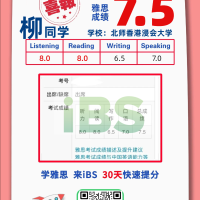一般将来时的结构重点、难点
一般将来时的学习重点是含义、结构和时间状语,难点是对这个时态的应用。
一般将来时的含义:
一般将来时表示将来某个时间要发生的动作或状态,或将来经常发生的动作或状态。
一般将来时的基本结构
1. will/shall+动词原形
will 在陈述句中用于各种人称;shall用于第一人称,常被will 所代替。
否定式:will not=won't;shall not=shan't
一般疑问式:will/shall+主语+动词原形+其他?
特殊疑问式:特殊疑问词+一般疑问式?
I will/shall do a better job next time. 下次我要做得好些。
Oil and water will not mix. 油和水没法混在一起。
—Will he help you with your English tonight? 今天晚上他会帮助你学习英语吗?
—Yes, he will./No, he won't. 是的,他会。/不,他不会。
—When will you arrive for America? 你什么时候去美国?
—Tomorrow. 明天。
2. am/is/are going to +动词原形
否定式:am/is/are not going to +动词原形
一般疑问式:am/is/are +主语+ going to + 动词原形+其他?
特殊疑问式:特殊疑问词+一般疑问式?
He is going to spend his holidays in London. 他打算在伦敦度假。
Look at the dark clouds. There is going to be a storm. 看那乌云,快要下雨了。
Is he going to collect any data for us? 他会帮我们收集数据吗?
What are you going to do tomorrow? 明天你打算作什么?
一般将来时的用法:
will+动词原形与am/is/are going to +动词原形的用法虽然都表示将来发生动作或情况,一般情况下能互换。但它们的用法是有区别的。
1. will主要用于在以下三个方面:
(1)表示主观意愿的将来。
They will go to visit the factory tomorrow.
明天他们将去厂参观工厂。
I’ll come with Wang Bing, Liu Tao and Yang Ling.
我将和王兵、刘涛、杨玲一起来。
(2)表示不以人的意志为转移的客观的将来。
Today is Saturday. Tomorrow will be Sunday.
今天是星期六。明天是(将)是星期日。
He will be thirty years old this time next year.
明年这个时候他就(将)三十岁。
(3)表示临时决定,通常用于对话中。
—Mary has been ill for a week.
玛丽病了一周了。
—Oh, I didn't know. I will go and see her.
噢,我不知道。我去看看她。
2. be going to主要用于一下两个方面:
(1)表示事先经过考虑、安排好打算、计划要做某事。
Dad and I are going to watch an opera this afternoon.
今天下午我和爸爸打算去看歌剧。
(2)表示根据目前某种迹象判断,某事非常有可能发生,表示推测。
Look! There come the dark clouds. It is going to rain.
瞧!乌云密集。天要下雨了。
用其他时态表示将来含义的情况:
1. 用现在进行时表示将来。
瞬时动词和持续动词都可以用其现在进行时表达将来的含义,主要表示按规定或时间预计要发生的事。(瞬时动词的进行时任何时候都表示将来的含义,持续动词的进行时只有在含有将来的时间状语或将来语境的条件下才表示将来)
The bus is coming. 公交车就要来了。
The students are leaving on Sunday. 学生们星期日出发。
We’re having a party next week. 我们下星期将开一个晚会。
2. 用一般现在时表示将来。
(1)come, go, arrive, leave, start, begin, return等瞬时位移动词的一般现在时可以表示将来含义,主要用来表示在时间上已确定或安排好的事情。
The train leaves at six tomorrow morning. 火车明天上午六点开。
(2)在时间或条件状语从句中。(主将从现)
I'll write to you as soon as I arrive there. 我到了那里,就写信给你。
If it doesn't rain tomorrow, we will have a party in the park. 如果明天不下雨,我们就在公园举行一个聚会。
There be结构的一般将来时
肯定式:There will be;There is/are going to be
否定式:There won't be;There is/are not going to be
一般疑问式:Will there be...;Is/are there going to be...
特殊疑问式:特殊疑问词+一般疑问式
There will be a basketball match this afternoon.
=There is going to be a basketball match this afternoon.
今天下午会有一场篮球赛。
There won't be a basketball match this afternoon.
=There isn't going to be a basketball match this afternoon.
今天下午没有篮球赛。
Will there be a basketball match this afternoon?
=Is there going to be a basketball match this afternoon?
今天下午有篮球赛吗?
When will there be a basketball match?
=When is there going to be a basketball match?
什么时候有一场篮球赛?
一般将来时常见结构大比拼
1. “be going to+动词原形”结构用来表示按照主观意图打算或按计划,安排将要做的事,有“打算、就要”的意思。也常用于表示从迹象上表明将要发生的事情,多指个人主观臆断的推测。如:Look at the clouds. It’s going to rain. 看这些云,要下雨了。
2. “shall或will+动词原形”指对将来事物近期或远期的预见,表达个人主观意图以及征求对方意见或表示客气的邀请。在书面语中,shall多用于第一人称;在口语中,will可以用于任何人称。如:I shall/will show my photos to you next Monday. 我下周一给你看我的照片。
句型转换
1. “be going to+动词原形”结构的一般疑问句是将be的相应形式前移到句首,即“Are/Is/Am+主语+going to+动词原形+其它?”。其否定句是在be动词的相应形式后加not.如:
(1)They are going to play football this afternoon.(肯定句)
(2)Are they going to play football this afternoon?(一般疑问句)
(3)They are not going to play football this afternoon. (否定句)
2. “shall/will+动词原形”结构的一般疑问句是将shall或will前移到句首,即“Shall/Will+主语+动词原形+其它?”。其否定句是在shall或will后加not.如:
(1)Our teacher will come back very soon. (肯定句)
(2)Will our teacher come back very soon?(一般疑问句)
(3)Our teacher won’t come back very soon. (否定句)






